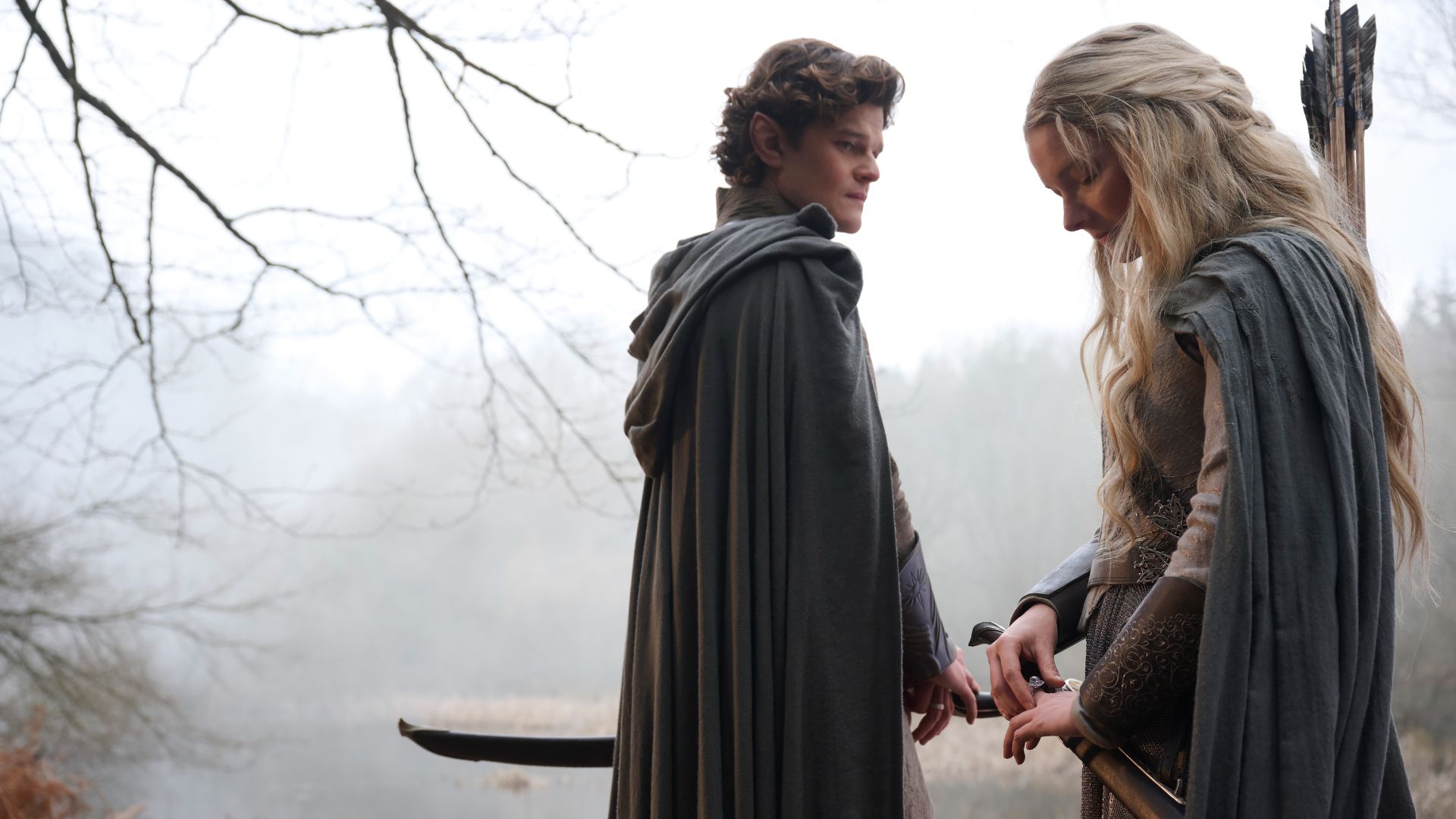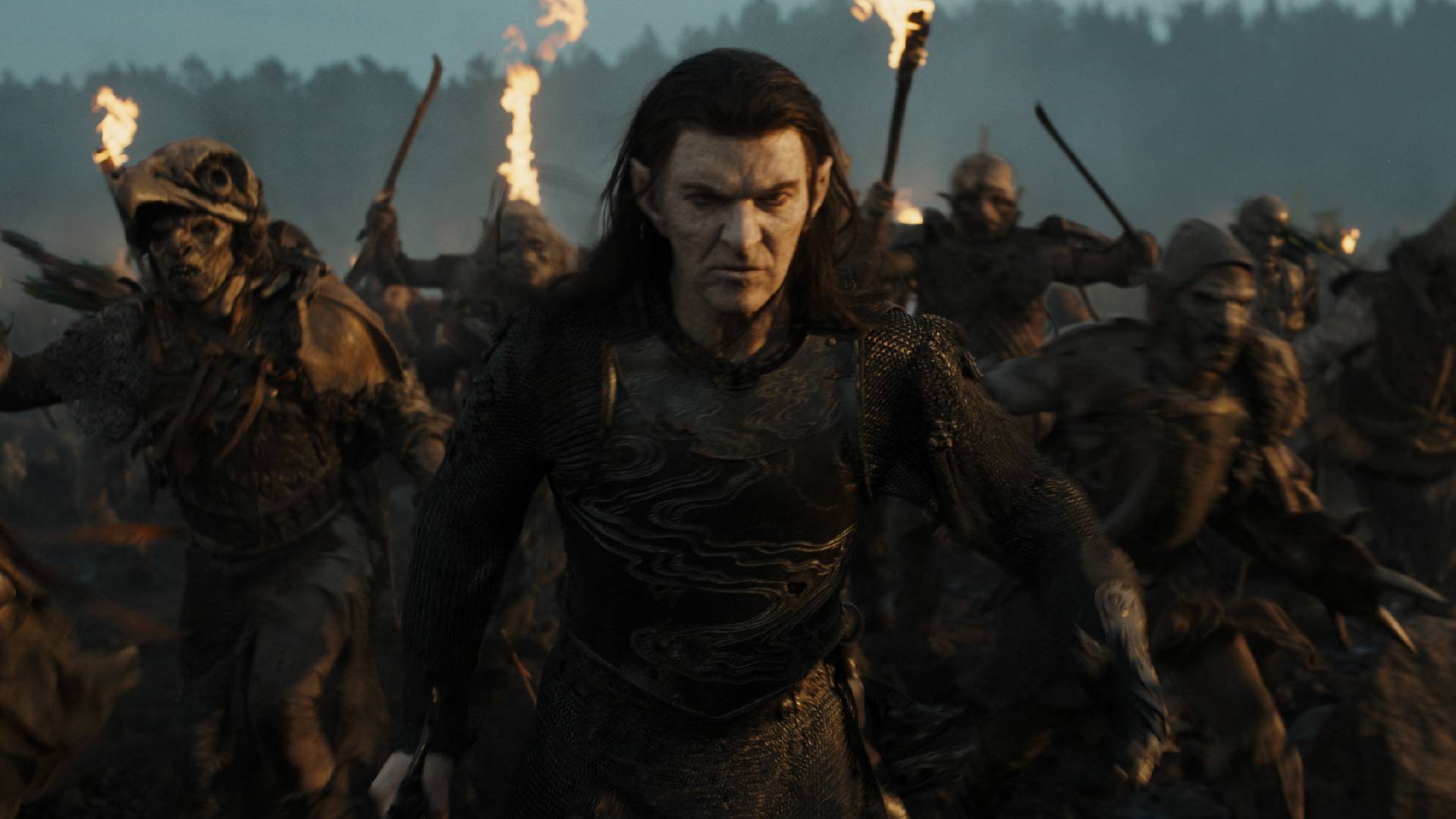
If you're confused about where The Rings of Power falls on the Lord of the Rings timeline, then we've got you covered. With The Rings of Power season 2 hitting Prime Video, there's never been a better time to get up to date on JRR Tolkien's chronology.
The TV show doesn't follow Tolkien's timeline to the letter, though, instead condensing events in the Second Age. Since that period spanned thousands of years, if the timeline wasn't rejigged a little, we'd be bidding a fair amount of human characters goodbye every other installment.
The Second Age is, well, the second major era in Middle-earth's history. It begins with the defeat of the great foe Morgoth, and it ends with the defeat of Sauron some three thousand years later.
The events of The Hobbit and the main Lord of the Rings story take place around three thousand years into the Third Age, and the destruction of the One Ring ushers in the Fourth Age. The Rings of Power draws on events written in Tolkien's Appendices and have never been put to screen before. In other words, we won't be seeing Sam and Frodo. To help you get your bearings on how this all fits together, we've delved deep into the tricky timeline to round up the most important points.
When does The Rings of Power take place on the Lord of the Rings timeline?

The Rings of Power is set during Middle-earth's Second Age. This epoch spans nearly three and a half thousand years, with many of the series' events taking place around the middle of this period, circa SA 1500-1701. During this period, Celebrimbor starts the creation of the One Ring and the other rings of power after he's twisted unknowingly by Sauron – we'll see the rings and Sauron manipulating Celebrimbor in his Annatar form in season 2.
However, those who know their Tolkein may wonder why characters who lived in a later period of the Second Age – like Elendil and Isildur – are also present. That's because the events in the show are also closer together compared to Tolkien's work as the timeline has been condensed. We know, for instance, that Isildur will cut off Sauron's hand around three and a half thousand years into the Second Age, thus bringing the Second Age to a close and starting the Third Age – we see this event take place in the prologue to Peter Jackson's movies.
Why condense the timeline? Realistically, if the show stuck to Tolkien's work exactly, only the Elven characters would be in every episode, as they're the race with the longest lifespans – hence why Galadriel and Elrond appear in both The Rings of Power and the movies, whereas other characters do not.
Speaking to Total Film, showrunners Patrick McKay and J.D. Payne explained how a non-linear series was considered, but that would have stopped the audience from emotionally investing in the show. Payne points out how plenty of real-life historical dramas do the same thing and says their guiding principle was respect for the "spirit and feeling" of the Second Age.
The Second Age is pretty much the middle part of Middle-earth's known history. The Hobbit and The Lord of the Rings trilogy take place in the Third Age, while the First Age (which is split into two halves, the Years of the Trees and the Years of the Sun) is when the first Elves and Dwarves were awakened by the supreme deity Eru and the first Orcs were created by Morgoth – essentially, the inception of Middle-earth as we know it. The First Age ends with Morgoth's defeat.
Where did Tolkien write about the Second Age? The majority of the era's history comes from the Appendices at the end of The Return of the King, the final installment of the main Lord of the Rings trilogy. These appendices chronicle the events of the Second and Third Ages that lead up to the start of the trilogy.
Lord of the Rings: The Rings of Power season 2 is releasing weekly on Prime Video every Thursday, following its triple season premiere on August 29. Make sure you never miss an episode with our The Rings of Power season 2 release schedule.







